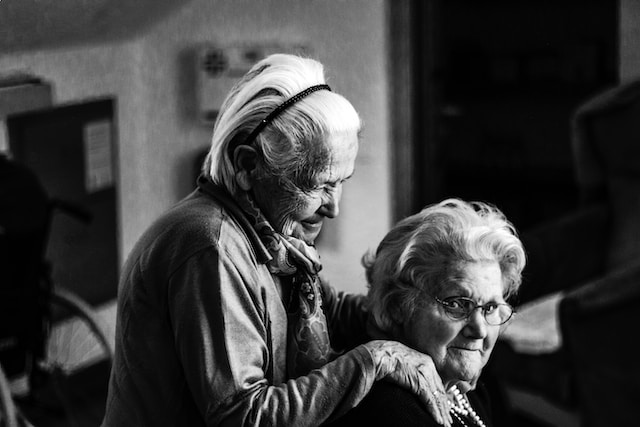Managing a chronic disease or terminal illness is extremely difficult on your own. Even the most supportive family may struggle and fatigue while attempting to give you the full care and attention you need and deserve. That’s where a Palliative Care program can help.
A structured program and dedicated care team can prove the difference when ensuring individuals managing illnesses continue living to the highest quality possible. Today, we look closely at what a Palliative Care program involves and how it helps navigate the 5 stages of Palliative Care to support people with diligence and dignity.
What is Palliative Care?
Many people live with a chronic or terminal illness that can only be managed rather than cured. Palliative Care refers to the process of treating the symptoms of these illnesses to make them manageable, reduce pain and suffering and optimising comfort while living with serious illness.
The types of illness most likely to require Palliative Care include different cancers, diabetes, multiple sclerosis, dementia, Parkinson’s disease, chronic respiratory conditions including dust diseases, kidney or liver disease and arthritis. Palliative Care is available at home using qualified professional nurses and carers or in registered care facilities and hospitals.
As patients progress through various stages of their illness, they will need different types of care along their journey. Using the formal Palliative Care process gives an individual the best opportunity to receive optimum care at the right time from the right teams to minimise pain and support quality of life while meeting the personal and clinical needs of the individual.

The Palliative Care Team
Because of the many types of chronic or terminal illnesses requiring Palliative Care – not to mention the varying stages of an illness – a broad team of health professionals is involved.
General Practitioner (GP)
A GP provides guidance and works collaboratively to ensure your diagnosis and medical history are considered when deciding the type of medical treatment required to manage symptoms and pain. They are involved whether a Palliative Care patient lives at home, in a residential care facility or hospital.
Registered Nurses
Following the guidance of a GP, a nurse or group of nurses are the people administering medical support in the home, care facility or hospital.
Carers
A carer provides non-medical support to a patient at home, including personal care (help to bathe or dress), social care (listening and chatting) and any domestic chores the patient struggles with, such as cooking and cleaning.
Psychologist
Most patients will struggle with the mental impact of a chronic or terminal illness and may need the services of a psychologist or counsellor.
What is included in Palliative Care?
Depending on the disease or illness and its impact on the patient, a different type of care will suit one individual better than the next.
Thankfully, Palliative Care includes all kinds of support to cover patients’ physical, mental, social and personal needs over time. Here are some of the more common types of care you can expect to find available in a Palliative Care program:
- Support with physical pain – likely through administering regular medication
- Help with essential daily tasks like personal hygiene, dressing and eating meals
- Psychological support through ongoing counselling
- Auxiliary care (transportation to see a GP, visiting the shops or support groups)
- Wound management
- Continence management
- Physical and emotional support for family members
- Help with planning for end-of-life
What are the 5 stages of Palliative Care?
Once a patient receives a prognosis of having a chronic or terminal illness, Palliative Care can begin. For those with a chronic illness, a program may last for many years; unfortunately, others who receive a terminal prognosis will move quickly to an advanced stage of care.
Stage 1 Palliative Care: Stable
The first stage of Palliative Care is when a patient has recently received a prognosis from a GP that is considered manageable. While in a stable condition, this is the time to create a formal care plan that considers the type of illness or disease, current symptoms and ongoing requirements for best quality of life. Patients are encouraged to go about their days in the same way as much as possible.
Stage 2 Palliative Care: Unstable
When a patient’s condition worsens, or they begin to experience new symptoms, they will need to adjust their Palliative Care plan to accommodate any additional support required. At this stage, they are also offered mental support from a psychologist or counsellor to help talk openly about their feelings and prepare both the patient and their loved ones for the coming stages.
Stage 3 Palliative Care: Deteriorating
As medical conditions worsen and overall health deteriorates, the Palliative Care team moves their focus (and that of the patient and family) to end-of-life care. Care at home may increase to ensure the patient has everything possible to remain comfortable. All pain-relief medication begins or, if already in place, continues.
For some patients, there may only be a short period of life remaining at this third stage, and counsellors provide support to these patients and their families to preserve mental health.
Stage 4 Palliative Care: Terminal
Unfortunately, at this stage, a patient is nearing the end of life and has only days or weeks remaining. The main focus of the Palliative Care team now is to ensure the patient is comfortable. Medical care continues to offer some relief, although additional symptoms can occur and add to the existing pain. A patient may become bedridden, lose their appetite or find it difficult to swallow food or medication. End-of-life medications and requests of a religious or spiritual nature begin.
Stage 5 Palliative Care: Bereavement
During the final stage, the patient has passed on, and all focus switches towards their family and loved ones, who may require emotional or psychological support. The Palliative Care team may offer this support directly or through referrals to third parties specialising in bereavement services. Depending on the nature of the patient’s illness and passing on and how it impacted their family or loved ones, Stage 5 Palliative Care may continue for many months, even years.
Final words
It is a term often associated with terminal illness, but Palliative Care is just as much for people with a chronic disease who have a longer life expectancy.
Whether chronic or terminal, everybody will progress through the 5 stages of Palliative Care at a different rate. Most notably, if you or a loved one find yourself in the unfortunate position of receiving a life-shortening prognosis, make sure you seek the support of a trusted and dependable Palliative Care provider.
Vital Home Health Services is led by a team of Registered Nurses with over 20 years’ experience in the public and private health sectors.
If you would like to discuss Palliative Care from Vital or have a question you would like to ask, contact our friendly and helpful team today.
Vital registered nurses help chronic and terminal illness patients manage symptoms and pain. Learn about how a dedicated and structure Palliative Care program can improve quality of life.








